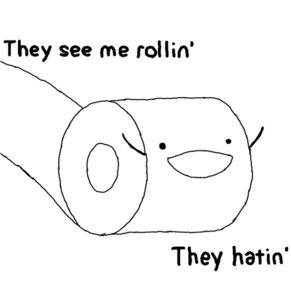12762308
Atoms and Reactions Quiz 1
Resumo de Recurso
Questão 1
Questão
Define isotope
Responda
-
A positively or negatively charged atom
-
Different forms of the same element with a different number of protons
-
Different forms of the same element with a different number of neutrons
-
A positively and negatively charged group of atoms
Questão 2
Questão
Isotopes have different physical properties
Responda
- True
- False
Questão 3
Questão
What did J. J. Thomson discover?
Responda
-
Protons
-
Electrons
-
Neutrons
-
Ions
-
Atoms weren't solid
-
Atoms are solid spheres
-
Shells
-
Plum pudding model
-
Tiny positively charged nucleus surrounded by a 'cloud' of negative electrons
Questão 4
Questão
What did Rutherford discover?
Responda
-
Protons
-
Electrons
-
Neutrons
-
Ions
-
Atoms aren't solid
-
Atoms are solid spheres
-
Shells
-
Plum pudding model
-
Tiny positively charged nucleus surrounded by a 'cloud' of negative electrons
Questão 5
Questão
The relative atomic mass is the [blank_start]weighted[blank_end] mean mass of an atom of an element, compared to 1/12 of the mass of an atom of [blank_start]carbon-12[blank_end].
Responda
-
carbon-12
-
weighted
Questão 6
Questão
Define relative molecular mass
Responda
-
The average mass of a molecule compared to 1/12 of the mass of an atom of carbon-12
-
The weighted mean mass of an atom of an element, compared to 1/12 of the mass of an atom of carbon-12
-
The average mass of a formula unit, compared to 1/12 of the mass of an atom of carbon-12
-
The mass of an atom of an isotope of an element compared to 1/12 of the mass of an atom of carbon-12
Questão 7
Questão
What is the difference between relative formula mass and relative molecular mass?
Responda
-
Relative molecular mass is compared to 1/12 of the mass of an atom of carbon-12, whist formula is compared to the whole atom
-
Relative formula mass is used for charged molecules
-
Relative formula mass is used for compounds that are ionic or giant covalent
-
Relative formula mass is used for metallic compounds
Questão 8
Questão
How many particles are in one mole?
Responda
-
6.02 x 10²⁴
-
6.02 x 10²³
-
6.02 x 10²⁶
-
6.02 x 10²¹
Questão 9
Questão
What is the ideal gas equation?
Responda
-
pR = nVT
-
p = nRT
-
pT = nRV
-
pV = nRT
Questão 10
Questão
What is the equation that links concentration with moles and volume?
Responda
-
Moles = Concentration x Volume
-
Moles = Concentration / Volume
-
Moles = Volume/ Concentration
Questão 11
Questão
The empirical formula is the [blank_start]smallest[blank_end] whole number [blank_start]ratio[blank_end] of atoms of each element in a compound.
Responda
-
smallest
-
ratio
Questão 12
Questão
The molecular formula is the actual numbers of [blank_start]atoms[blank_end] of each type of [blank_start]element[blank_end] in a molecule.
Responda
-
atoms
-
element
Questão 13
Questão
When a hydrocarbon is burnt in excess oxygen, 8.8g of CO₂ and 3.6g of H₂O are made. What is the empirical formula of the hydrocarbon?
Responda
-
CH₄
-
C₂H₄
-
CH
-
CH₂
Quer criar seus próprios Quizzes gratuitos com a GoConqr? Saiba mais.

